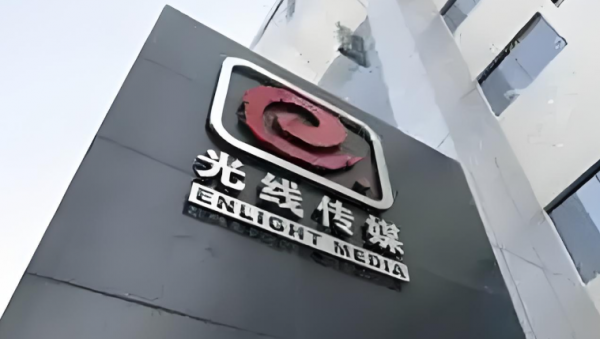Nezha Auto and Enlight Media Clash Over "Nezha" Trademark Amidst Common Trademark Disputes
![]() 02/12 2025
02/12 2025
![]() 618
618

During the 2025 Spring Festival movie season, the film "Nezha Reborn" (abbreviated as "Nezha 2") soared in box office sales, becoming the highest-grossing film in Chinese cinema history. This cinematic triumph has once again thrust the IP of "Nezha the Demon Child" into the limelight.
Amidst this surge in popularity, a trademark battle spanning the automotive and film industries has emerged.
According to the Trademark Office of the National Intellectual Property Administration and public legal documents, Nezha Auto and Enlight Media have engaged in multiple rounds of competition over the ownership and scope of use of the "Nezha" trademark. It is reported that the current trademark dispute between the two companies has not yet reached the litigation stage, and both parties are actively seeking a resolution through negotiation.
This cross-industry trademark dispute underscores the complexity and challenges of brand protection in the era of the IP economy.
The "Nezha" IP: Years-long Trademark Dispute
The trademark dispute between Nezha Auto and Enlight Media dates back several years.
In 2019, "Nezha the Demon Child" (abbreviated as "Nezha 1") topped the domestic animated film box office with over 5 billion yuan, solidifying its status as a phenomenal IP. Enlight Media, the film's producer, swiftly began its trademark layout, filing applications for trademarks such as "Nezha the Demon Child" and "Demon Child Nezha" across multiple categories, including film and television, games, toys, and more.
However, as early as 2018, Hozon New Energy Auto Co., Ltd. had already launched the "Nezha Auto" brand and applied for the registration of related "Nezha" trademarks, encompassing categories like automobiles and transportation tools.
As Nezha Auto's brand recognition grew, conflicts between the two parties over the use of trademarks gradually came to the fore.
In 2021, Enlight Media objected to Nezha Auto's "Nezha" trademark application, arguing that its registration in fields like film and television, gaming, and others could cause public confusion and undermine the commercial value of the film IP.
Conversely, Nezha Auto maintained that its trademark registration categories were not directly related to the film and television industry and that the brand naming preceded the film's release, thereby negating any malicious intent.
In 2023, Nezha Auto's application for the "Mo Xiaotong" trademark was also objected to by Enlight Pictures and subsequently rejected by the Trademark Office. Furthermore, Enlight Pictures filed invalidation requests for trademarks such as "Nezha the Great Demon Child" and "Nezha the Little Demon Child" applied for by Nezha Auto.
Nezha Auto retaliated by once requesting the invalidation of the "Demon Child Nezha" trademark, alleging that "Enlight Pictures knowingly registered the disputed trademark despite being aware of Nezha Auto's 'Nezha' series trademarks, which is clearly malicious." However, the Trademark Office review found Nezha Auto's invalidation reasons to be unfounded and ultimately upheld Enlight Pictures' "Demon Child Nezha" trademark.
This strategy of "mutual invalidation" highlights the intense competition for core IPs between the two parties.
From a commercial standpoint, the IP of "Demon Child Nezha" holds immense commercial potential. Whether it's film box office sales, derivative product sales, or brand collaborations, it can generate substantial revenue.
For Nezha Auto, the trademark dispute may serve deeper purposes. Amidst severe operational challenges, including a loss of over 18 billion yuan in 2023 and declining sales in 2024, Nezha Auto's brand influence has waned. In this context, the trademark dispute could be a strategy to revitalize its brand by leveraging the popularity of the IP.
In the Era of the IP Economy, Proactive Trademark Protection is Crucial
From a legal perspective, trademarks are intellectual property protected by law. Timely trademark registration can effectively prevent malicious registration by others and safeguard one's legitimate rights and interests. Neglecting trademark protection can lead to the loss of commercial development rights for the relevant IP and entanglement in lengthy legal disputes, consuming significant time and resources.
In fact, the dispute over the "Nezha" trademark is not an isolated incident.
In recent years, with the thriving IP economy, trademark squatting and cross-border disputes have become prevalent in fields such as film and television, games, consumer goods, etc. For instance, following the blockbuster success of the film "The Wandering Earth," multiple companies squatted on the "The Wandering Earth" trademark; similarly, after the popularity of the game "Honor of Kings," its trademark was used in categories like liquor and clothing.
Currently, this trademark battle over "Demon Child Nezha" serves as a wake-up call for the entire IP economy sector.
For enterprises and creators, in the era of the IP economy, proactive trademark protection is essential. At the inception of a work, it is crucial to plan the trademark layout, promptly apply for trademark registration, and cover as many categories as possible to establish a comprehensive intellectual property protection system. Additionally, in daily operations, close monitoring of trademark dynamics is necessary to prevent infringement by others.
Furthermore, for the development and utilization of public cultural IPs, achieving reasonable sharing while respecting originality and avoiding excessive competition and infringement disputes is a pressing concern for all enterprises. Perhaps, after this dispute is resolved, we will witness a more standardized and orderly IP business ecosystem.








